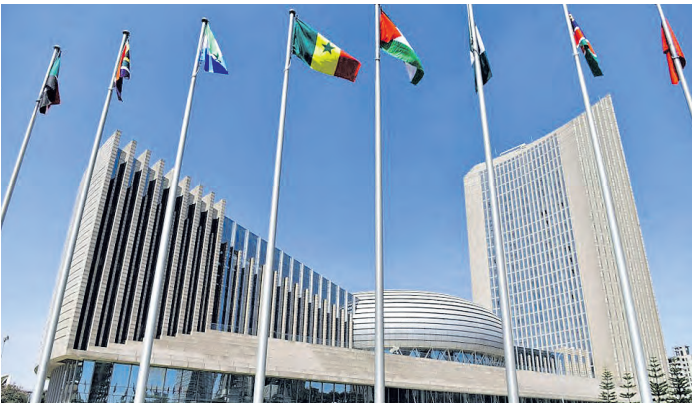

The dust is finally settling after the fiercely contested African Union Commission election. Kenya’s candidate, Raila Odinga, failed to capture the coveted seat.
At the heart of Kenya’s failure was the spectacular lack of strategic diplomacy and soft power – empathy, inclusiveness, listening and a targeted strategy.
Instead, Kenya projected an aura of arrogance, acting like a cantankerous know-it all more interested in throwing her weight around than building consensus.
By framing the election as a win for Baba being a win for Kenya rather than for Africa, Kenya failed to inspire confidence among member states.
In essence, we exported our domestic political antics – the juvenile ‘winner-takes-all’ mindset – to the continental stage.
This loss is a reflection of the inadequacies of Kenya’s political architecture. But beyond Kenya’s missteps, the AUC elections underscore deeper questions about the AU itself.
The AU traces its roots to its precursor – the Organization of African Unity, founded on May 25, 1963. The OAU was born out of the vision of Africa’s founding fathers – pan-African giants like Kwame Nkrumah of Ghana, Julius Nyerere of Tanzania and Haile Selassie of Ethiopia.
These leaders dreamed of a united and prosperous Africa, free from colonial domination and exploitation. The OAU’s primary mandate was decolonisation and safeguarding the sovereignty of African states. To its credit, it played a pivotal role in supporting liberation movements across the continent.
However, it was hampered by a rigid adherence to the principle of non-interference in the internal affairs of member states. This stance allowed despotic leaders to cling to power with impunity, undermining human rights and democracy.
The OAU transformed into the AU in 2022 with a more robust mandate encompassing peace and security, integration and socioeconomic development. It aimed to move beyond liberation politics to focus on the economic and political integration of the continent.
Yet, despite its ambitious vision, the AU continues to grapple with numerous challenges. One of the most significant challenges facing the organisation is a leadership deficit.
The new AUC chairperson, Mahmoud Ali Youssouf, is expected to be the face of Africa’s diplomacy, but often, leadership is mired in regional and political allegiances, undermining the commission’s effectiveness.
The election of the AUC chair frequently becomes a contest of influence among regional blocs, as was evident in the just-concluded election. The AU is plagued by financial dependence on external donors. International partners, including the European Union, the United States and China, fund about 60 per cent of its budget.
This dependency deflates its capacity to pursue an independent agenda that truly refl ects African priorities. The AU also faces challenges in peace and security.
Conflicts in the Sahel, the Horn of Africa, and parts of Central Africa continue unabated. While the AU has mechanisms like the African Peace and Security Architecture, it lacks the political will and resources for effective intervention.
Moreover, the organisation struggles with implementation deficits. Grand declarations and visionary frameworks like Agenda 2063 – Africa’s blueprint for socioeconomic transformation – are often bogged down by poor execution, lack of accountability and inadequate monitoring.
The role of the AUC chairperson is critical in shaping the AU’s strategic direction. Africa needs Yousuf to embody visionary leadership, diplomatic finesse and political acumen.
He must transcend regional and political biases to provide inclusive leadership that resonates with all member states. He should also champion fi nancial independence by promoting the full implementation of the AU’s self-financing mechanism – the 0.2 per cent levy on eligible imports.
This initiative, if fully adopted, should reduce donor dependency and enhance the AU’s financial sovereignty.
Furthermore, he needs to harness the continent’s demographic dividend. With 60 per cent of Africa’s population under 25, he must prioritise youth empowerment, education and employment.
This requires not just policy rhetoric but actionable programmes to foster innovation, entrepreneurship and skills development.
To realise its potential, Yousuf must address AU’s credibility gap. This requires institutional reforms to enhance transparency, accountability and efficiency.
Member states must demonstrate political will by fully implementing AU decisions and protocols.
Secondly, the AU must embrace people-centered governance. The new chair should prioritiae the inclusion of civil society, women and youth in decision-making processes. Ths calls for strengthening platforms like the Economic, Social and Cultural Council to amplify the voices of ordinary Africans.
Thirdly, Yousuf must strengthen AU’s peace and security architecture by enhancing the operational capacity of the African Standby Force. This should facilitate rapid and effective responses to conflicts and humanitarian crises. Going forward, Africa must abandon the narrow politics of regionalism and embrace pan-Africanism.
We must stop viewing the AUC chairperson as a political trophy and start seeing it as an opportunity to provide transformative leadership.
If Africans are to fulfill the dreams of Nkrumah, Nyerere and Selassie, they must redefi ne leadership, rethink strategy and rekindle the spirit of pan-Africanism. Only then can we build an AU that truly serves the aspirations of its people. Yousuf, kazi kwako.
The writer teaches Globalisation and International Development at Pwani University and is a Programmes Associate at DTM, a Media CSO











